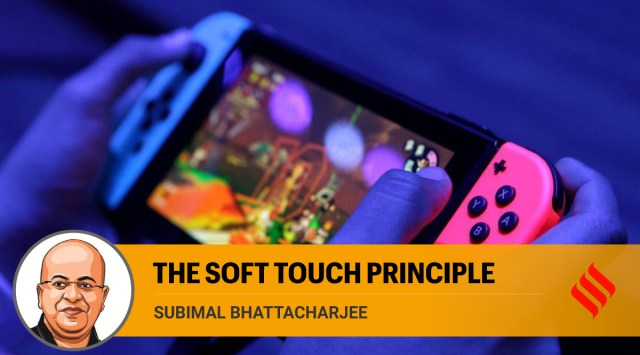
On January 2, the Union Ministry of Electronics and IT released the draft rules for online gaming for public consultation. The rules framed the approach of the self-regulatory body (SRO) that would be responsible for registering and approving games. The rules specify the mandatory know-your-customer norms for verification and stipulate a grievance redressal mechanism. The rules are timely. The popularity of online games is on the rise. The sector is also crucial for India’s leap towards the $1-trillion digital economy milestone. Therefore, harmonising the multiple legal positions of the state governments on the sector had become imperative.
Online games require a player to make a deposit with the expectation of winning. These games can be broadly divided into ones that require skill and ones in which chance plays a major role. They could have a single or multiplayer format. Action games, card games, e-sports, fantasy sports and strategy sports are some of the genres of online gaming. In the Indian context, games of chance are illegal and thus ruled out in the proposed SRO ecosystem. The new rules encourage the development of games of skill. They will be in three broad categories — free to play, pay to play and play-to-earn.
The Centre has taken a prudent step by adopting a soft-touch approach in the form of an SRO, rather than a regulatory body under the government. The self-regulatory approach could help draw investments that has, so far, been very subdued due to the variety of conflicting legal positions across states. The rules indicate that the government has two initial targets: One, making Indian companies major players in the sector by encouraging innovative games and two, encouraging the growth of the Indian online gaming industry so that the online gaming economy comes to scale.
The government is taking a calculated risk in using the self-regulation approach for the online gaming sector. The compliance with IT rules by the social media intermediaries has been, by and large, satisfactory. According to the rules, the board of directors of SROs will comprise industry representatives, information communication technology specialists and experts in psychology. There will be regular communication with the Centre about every registered game — this should act as the necessary oversight on the SRO. Audit mechanisms will have to be enforced and the loopholes that were found in cyber security audits should not be repeated in the sector. Requiring a participant to be 18 years and above is a good move. However, it remains to be seen how this is implemented — the experience with the now-banned PUBG indicates, teenagers are more hooked to online games.
The regulatory approach will have to target the menace of offshore gambling platforms and illicit entities that advertise their products in several media. The onus is on the SROs to ensure a healthy ecosystem for online gaming.
The writer is a cyber security analyst